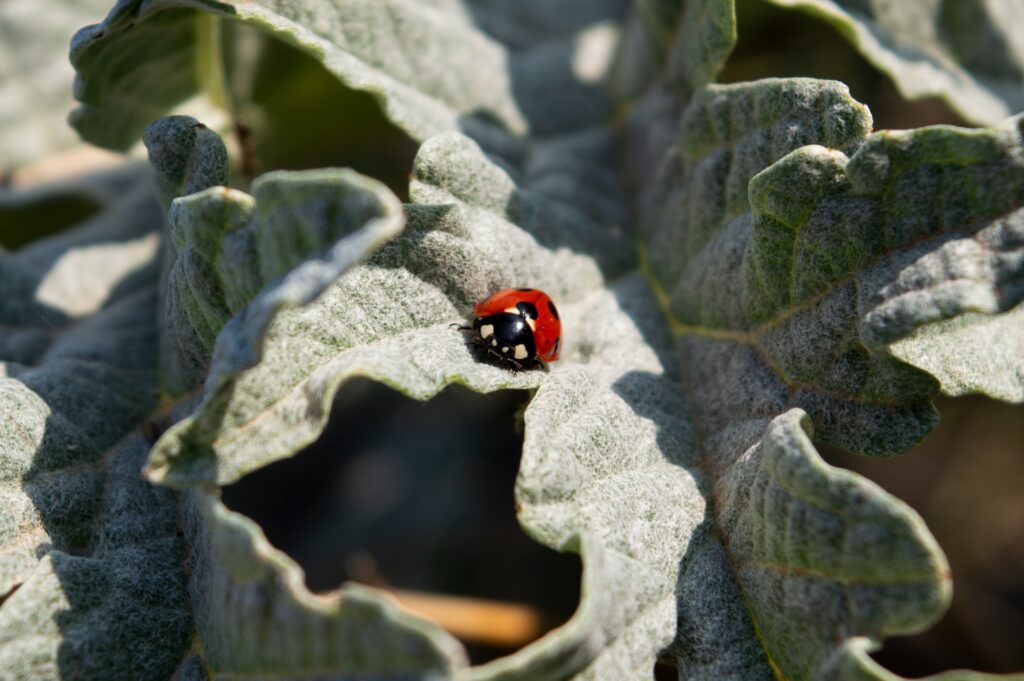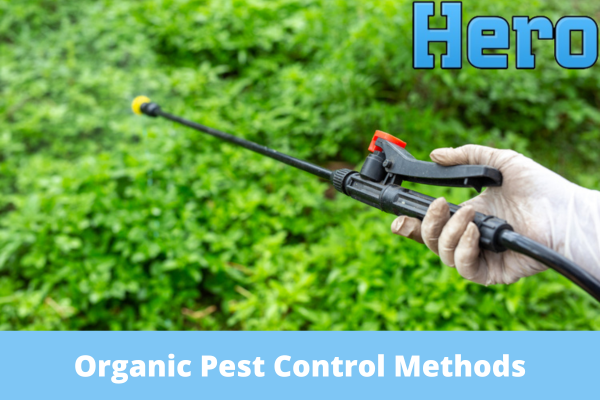As people become more aware of standard chemical-based pesticides’ environmental and health consequences, there has been a surge in interest in organic pest management approaches in recent years. Organic pest control provides long-term solutions that protect beneficial creatures, maintain ecosystem balance, and protect humans and pets. In this blog post, we will define organic controls, present examples of organic control methods, examine the best organic pest treatment recommendations, stress the necessity of organic pest management, and delve into the most common organic pest control methods.

What Are Organic Controls?
Organic pest control, or organic pest management, uses natural and environmentally friendly approaches to manage pest populations. Rather than relying on synthetic chemical pesticides, these strategies emphasize preventing and managing pests through biological, mechanical, cultural, and physical means. Organic controls prioritize sustainability, environment preservation, and human health risk reduction.
What Is An Example Of Organic Control?
Organic pest control strategies include a variety of techniques. Here are a couple of such examples:
Biological Controls
Biological control is an organic pest control method that utilizes natural predators, parasites, or pathogens to manage pest populations. For example, ladybugs are often introduced into gardens to prey on aphids, common plant pests. Nematodes, microscopic roundworms, can be used to target soil-dwelling pests like grubs or caterpillars. By harnessing the power of these beneficial organisms, biological controls offer a sustainable and chemical-free approach to pest management.
Crop Rotation and Companion Planting
Crop rotation and companion planting are cultural practices that can help deter pests naturally. Crop rotation is the practice of altering the crops cultivated in a certain area from season to season in order to interrupt pest life cycles. Planting legumes, such as beans or peas, for example, can help fix nitrogen in the soil while also discouraging pests that feed on other types of plants. Companion planting involves growing certain plants together for mutual benefit. For example, planting marigolds alongside vegetables can repel aphids and other insect pests due to their strong fragrance.
Must Read: How Long Does It Take To Kill A Flea Infestation?
Mechanical Controls
Mechanical controls rely on physical methods to manage pests. Traps, such as sticky boards or pheromone traps, can be used to capture and monitor pest populations. Physical barriers, such as netting or row covers, can be installed to prevent pests from reaching plants. These barriers provide a physical barrier that pests cannot easily penetrate, protecting crops without the need for chemical pesticides. Mechanical controls offer a targeted and environmentally friendly approach to pest management.
Cultural Controls
Cultural practices focus on creating an environment that is unfavorable for pests and promotes the health of plants. Good hygiene practices, such as removing plant debris or weeds that can harbor pests, help eliminate potential breeding grounds. Maintaining healthy soil through proper irrigation, fertility management, and organic matter incorporation enhances plant vigor and resilience to pests. Additionally, practicing good plant management techniques, such as pruning diseased plant parts, promotes overall plant health and reduces susceptibility to pests. By adopting cultural controls, gardeners and farmers can create an ecosystem that naturally discourages pests.
What Are Barriers to Implementing Organic Pest Control
Implementing organic pest control methods can face challenges that need to be considered. Here are some common barriers:
- Limited Efficacy: Organic methods may not provide instant or complete eradication, requiring a consistent and persistent application.
- Time and Effort: Organic pest control often requires more time, monitoring, and manual intervention.
- Knowledge and Expertise: Effective implementation requires understanding pest biology and appropriate techniques.
- Cost Considerations: Some organic methods can be more expensive than conventional treatments.
- Availability of Resources: Access to organic pest control products and resources may vary depending on location.
Despite these barriers, the benefits of organic pest control make it a worthwhile choice. By addressing these challenges and seeking expert support, successful implementation can be achieved.
What Is The Best Organic Pest Control Recommended And Why?
The most effective organic pest control method is determined by the specific pest problem and the ecosystem it affects. IPM (Integrated Pest Management) is the best solution since it incorporates numerous organic control approaches suited to the pest and its habitat. IPM emphasizes cultural, biological, and mechanical controls, using least-toxic pesticides as a last resort.
IPM considers pests’ life cycles, natural adversaries, and the surrounding ecosystem. It tries to balance pests and their predators, ensuring long-term, sustainable pest management. IPM reduces dependency on chemical treatments and enhances ecological harmony by emphasizing prevention, monitoring, and the least-disruptive control measures.
What Is The Importance Of Organic Pest Management?
Organic pest management has numerous significant advantages:
Environmental Protection: Organic pest management methods employ fewer synthetic pesticides, which has a lower impact on non-target creatures, beneficial insects, and the entire ecosystem. It encourages biodiversity and natural habitat preservation.
Human and Animal Safety: Organic pest control prioritizes the health and safety of humans, pets, and animals by avoiding or limiting the use of hazardous pesticides. It lowers the danger of pesticide exposure and the accompanying health problems.
Long-Term Sustainability: Organic controls emphasize long-term sustainability through sustainable behaviors. Organic pest management promotes ecosystem equilibrium and natural pest control mechanisms, resulting in healthy and resilient agricultural systems.
Reduced Pesticide Resistance: Organic pest management approaches, particularly those based on biological controls, can aid in the reduction of pesticide resistance. Pests are less likely to resist specific management measures when using multiple pest control strategies.
Summary
Organic pest control approaches are the way to go when it comes to managing pests without jeopardizing ecosystem health or human well-being. Without using synthetic chemical pesticides, we may efficiently safeguard our homes and gardens through biological, mechanical, cultural, and physical controls. Pest problems can be solved in a way that supports long-term sustainability and reduces the hazards associated with conventional pest management by employing organic treatments such as biological predators, crop rotation, mechanical traps, and cultural techniques.
At Hero Pest Control, we understand the importance of organic pest management and its benefits for both our customers and the environment. Our trained exterminators will address your pest management needs in a way that’s both effective and environmentally responsible. We can help you eradicate pests without harming the local ecosystem. Get in touch today, and let’s set up a time to assist you in reclaiming your home from insects.
Keep in mind that eliminating pests can have a good effect on the environment and that Hero Pest Control can help you do just that. If we work together, we can definitely make the future a better place for everyone.

